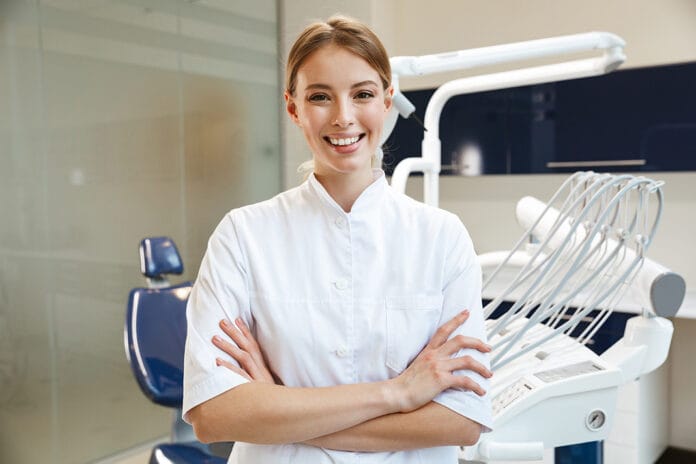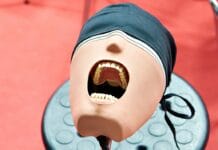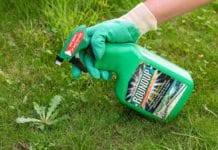As a new graduate, the past few years probably seem like a blur to you. You’ve endured many hours of studying, mock boards, clinicals, exams, meeting proficiencies, late-night cram sessions, searching for that perfect board patient, and now it has finally paid off!
Be proud of your dental hygiene school accomplishments. You really have done so much in a short amount of time! You have now graduated and passed your boards, and you can add the RDH credentials to your name. Kudos to you, but you may be asking yourself: Now what?
As a new graduate in the early 1990s, I wish that a seasoned hygienist would have taken the time to share a few things about my chosen profession with me – the good, the bad, and the ugly. There are a variety of things to keep in mind, so here are 10 tips as you enter your new career.
1) Be confident but teachable
The transition from dental hygiene school to practice is may sometimes be overwhelming in the beginning. You have the skills necessary to provide care to your patients, but you should be open and coachable. Perhaps your team members have an easier way to accomplish a task or know about a product that you were never introduced to in school.
Rely on your education, but don’t discount helpful ideas from others.
2) Be organized and stocked up
I cannot tell you the number of hours I probably wasted looking for things or moving things around to get what I needed due to a lack organization. The operatory should be stocked and set up to best suit you. Store things you need in convenient, easy-to-reach places.
I am five feet tall, so nothing I truly need goes on high shelves. Group together all your basic patient care items (i.e., air/water syringes, saliva ejectors, gauze) in one easily accessible drawer for quick room turnovers or if you need something during an appointment. Ensure your cassettes are in the order you prefer so you can quickly grab your instruments without rummaging through the cassette to find them.
3) Take care of yourself
Let’s face it, hygiene is a physically demanding job that can take a toll on our bodies in a short period of time. Remember your ergonomics, please! All the bending, contorting, and repetitive motions can be harmful.
In addition to maintaining correct posture, using loupes and ergonomically designed equipment is essential, even if you must purchase it yourself. Trust me, it’s worth the investment. The kinder you are to your body now, the better it will be to you 15 or 20 years down the road.
Don’t hesitate to find a great massage therapist and visit them frequently to keep those knots and aches from developing with daily work.
4) Communicate and co-diagnose
Tell the doctor when you see something or even think you see something suspicious. It’s great for the patient to be made aware of a potential concern before the exam, and many dentists may appreciate that the patient has already been briefed about possible treatment needs.
This also helps you to learn how your doctor diagnoses needed treatment and lets the doctor know about the patient’s periodontal health. In most general dental offices, you are the eyes and voice for that patient’s periodontal health, so speak up and let your light shine.
5) Invest in your patients
Get to know your patients as people – their family, interests, and hobbies. Yes, absolutely take care of their dental needs, but don’t be so focused that you forget there is a person attached to that mouth.
If you are in an office for any length of time, you will see these people regularly, and it becomes a welcoming, favorable experience if there is a true connection between you both. They already assume you are a great clinician – show them you’re a great person, too.
6) Be a team player
Be happy, be on time, smile, skip the drama, laugh, and enjoy the day. If you can help in any way, do it! Most dental practices are very busy, and there is always something to do.
If you happen to have a few minutes and can help the assistants catch up on sterilization, please do! If the doctor’s patient is waiting, and you have a minute to grab a quick periapical radiograph for them, please do! If the trash is overflowing in the restroom and you can change the bag, please do!
And my personal favorite: Got a sweet tooth? If you are picking up doughnuts for yourself, treat the team! I know they are not healthy, but they are so good.
7) Search and find your ideal workplace
It may not happen right away, but it might! Find the office that best aligns with your views and philosophies about dentistry and life in general. You will most likely spend many hours a day in your office, and I can’t stress how important it is to be happy while you are there.
If you are not on the same page with the people you work for or with, look elsewhere. Attitude, culture, ethics, and integrity of the office are very important when making your decision about where to spend your time.
8) Not all days are perfect
It’s going to happen. You may run behind, miss a piece of calculus, or take nondiagnostic, overlapped bitewings. You may have a grumpy patient who is rude for no apparent reason. The doctor or a team member may be in a foul mood and take it out on you.
Remember, it’s just one day. Keep your cool and smile through it. Continue to learn and try to gain insight from each experience.
9) Don’t hesitate to take the lead
Just because you are fresh out of school does not mean you can’t be the leader in some area of your office. Offer to be involved in whatever area you are best suited.
Maybe you are great at social media and could head up the office’s social media page(s). Maybe you have a knack for organization and would be great at handling the supply orders. Maybe you are awesome at planning events and can organize a patient appreciation day or teambuilding activities. Just be involved and try to contribute.
10) Trust yourself
Don’t forget that you are a highly trained health care professional who is very capable of treating patients and helping them preserve their teeth for a lifetime. Rely on your education and your instincts.
Ask questions when necessary. Don’t be ashamed to say, “I don’t know, but I can find out for you.”
In Closing
The transition from dental hygiene school to practice might seem overwhelming, but in no time, you will find your rhythm.
Your dental hygiene education is a great foundation to build upon, but as new research emerges, best practices and protocols can change. From being open and coachable to finding an office that aligns with your ethics, don’t forget to continue to learn.
Most importantly, just have fun and enjoy the ride of being a dental hygienist. It’s the best one I’ve ever taken.
Before you leave, check out the Today’s RDH self-study CE courses. All courses are peer-reviewed and non-sponsored to focus solely on high-quality education. Click here now.












